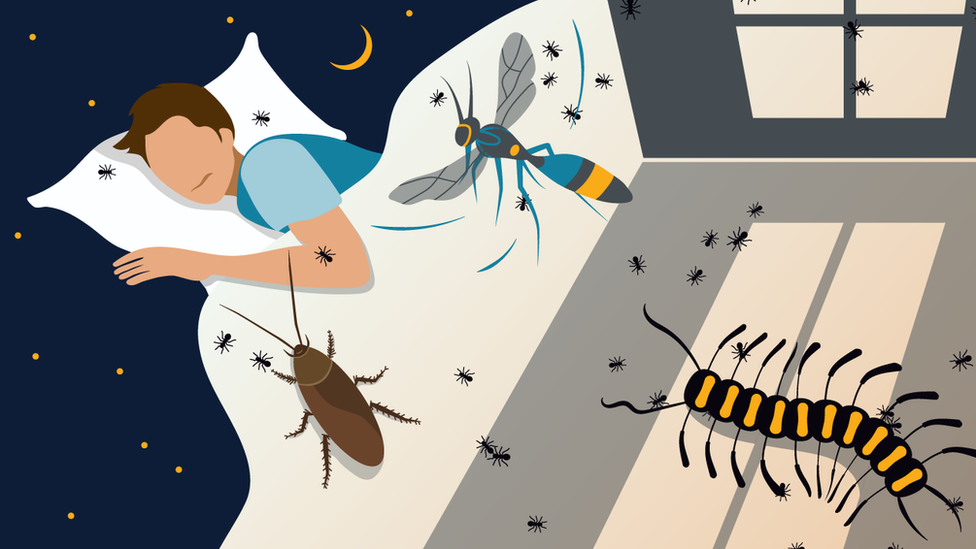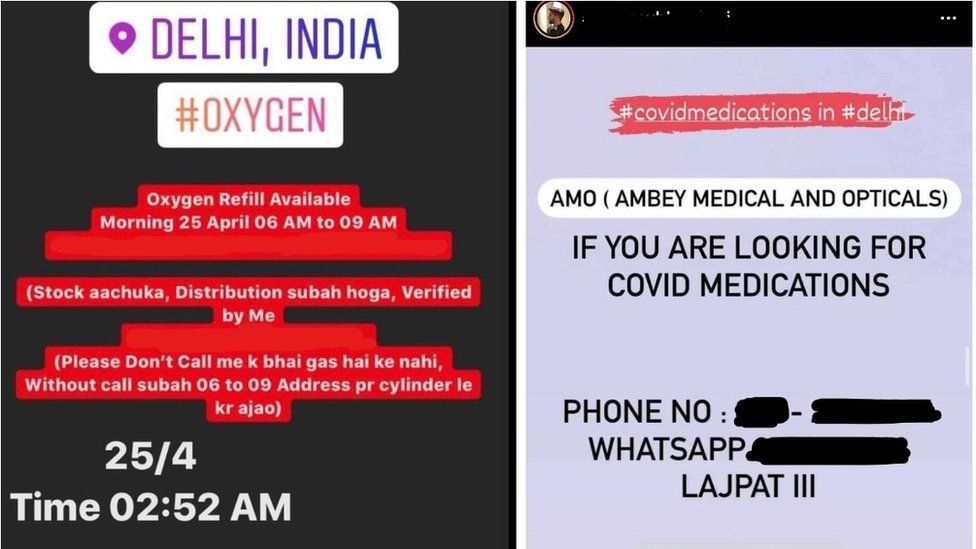Covid: How the pandemic is affecting your dreams
SharecloseShare pageCopy linkAbout sharingWhen coronavirus swept the globe last year, reports were everywhere of startling, vivid dreams plaguing us.Faced with the Covid-19 threat, our brains were overwhelmed and they transferred the stress to our sleeping state.Now, more than a year on, as many people have become used to pandemic life, we set out to find from you if your dreams had also adapted to the “new normal”. Are masks, empty streets and social distancing now simply a backdrop to our everyday dreams? What do you see when you nod off?From circling sharks to hand-washingHere are a handful of the dreams readers sent us.”I will be walking along a beach with water filled to the brim with sharks, and wonder why people aren’t social distancing,” says Fiona Ramage in Dundee, Scotland. She says the pandemic is now the backdrop of most of her dreams and they sometimes include a “casual, matter-of-fact” fear of coughing.Sayaka, who moved to the UK from Japan with her family, says her seven-year-old daughter tells her about her Covid dreams. “She mainly ‘stays at home’. Only her parents wear masks, and all members of the family wash hands in the dream.”While Mariela Cortés, in Santiago, Chile, says her dreams have taken a more surreal turn. “I even want the animals – cats and dogs – to wear masks, but they don’t.”We received just a sample of dreams from our readers, but scientists have been researching the issue for months now. Deirdre Barrett, a psychologist at Harvard Medical School in the US, has collected some 15,000 dreams in an online survey of the public.So far, around two-thirds of the respondents are women and one-third men.Her resulting book, Pandemic Dreams, focuses on the pandemic’s first wave. She says that when it initially hit, many people dreamed about threats like insect attacks or being unable to breathe. Then during lockdowns and home-schooling, a common theme was being trapped in prison or being forced to take a surprise maths test. Have we become more forgetful in lockdown?When can we stop wearing masks?How has coronavirus affected mental health?However, after about six months, Dr Barrett told us she noticed a significant uptick in people describing dreams about forgetting to wear a mask or being out in public and seeing others not wearing a mask.Dr Barrett suggests that initial dreams, which tended to express fear of catching the virus, decreased as dreams about social anxiety rose.”Many dreams became ‘I forgot my mask’ and a social shame came over the dreamer. They were more concerned about getting out of there before anyone noticed that they had made a mistake,” she says. Maskless in the supermarketA number of readers told us they dreamt of scenarios involving social shaming or anxiety. “I’m in a crowded space, like a shopping centre, and all of a sudden I realise I have no mask. Nobody around me is wearing masks either. I feel in danger and become suddenly extremely aware of people’s proximity to me,” says Diletta de Cristofarro in Nottingham, UK.Naomi Harvey in Cambridgeshire says she dreamed about hugging her nephew, before the rules relaxed, and as she hugged him, her family approached and she suddenly remembered the pandemic. “I woke with a feeling of panic at having broken the rules and risked exposing each other to the virus.” And Diana Valk from London says in one dream she mistakenly hugged a stranger thinking it was someone she knew. The person was “horrified… because she was scared of getting Covid and neither of us were wearing masks,” she recalls. “My main emotion was embarrassment because I hugged the woman in front of others and she looked so shocked.”Valdas Noreika, a lecturer in psychology at Queen Mary University of London, explains there is a complex link between the waking mind and the sleeping mind. “Some themes move between waking and sleeping, but there are some things in daily life that we never dream about, for example browsing the internet,” he explains. He and colleagues are collecting dream diaries for a study that will analyse whether daytime thoughts about Covid have affected what people dream about.It is normally things that arouse strong emotions that cross into our dreams, he says.”Someone who is very threatened in the pandemic is more likely to dream about it for many years to come, which is interesting but also sad,” he adds. Your coronavirus stories The science of hugs: Why do we miss them so much?And what about our idea that coronavirus may have blended into the background of our dreams – it’s there in the masks and distancing but as a normal part of life?Dr Barrett says she hasn’t come across dreams like this so far. “Often there is a real time delay… we often dream about periods of our past, not always the present,” she explains. But, she adds, there is a chance that once the pandemic is over, we will have dreams casting back to this time.”I wouldn’t be surprised if two to three years from now, we see dreams like someone is out in a restaurant and people are wearing masks and when they wake, the dreamer associates it with the pandemic,” she explains. One of the newest themes in pandemic dreams that Dr Barrett has recorded is vaccines. “Once the vaccines were approved, we started to see that in dreams but they are overwhelmingly negative. For example, someone goes to get their vaccine and they realise the syringe has a cyanide label on it,” she explains.She puts this down to the subconscious dislike many people have for injections, rather than any link to anti-vaxxer beliefs. (There is no evidence of Covid-19 vaccines causing deaths.)Her research so far suggests that more than 90% of the pandemic dreams are negative. But in recent months a small number have reported positive dreams about life after the virus.”There are dreams where the environment is better – the ocean is cleaner or there is less rubbish. There are lots in which unrealistically large whales are swimming close to shore. One woman walked out for the first time after the pandemic and looked up and saw that the whales had learned to fly, and there were big whales swooping through the sky,” she says.And for some people, throughout the pandemic sleep has remained a place of respite from Covid. “My dreams are probably the only thing that stayed the same during this difficult year. I have never dreamed of people wearing their masks and being unable to touch each other – it simply isn’t part of my dream life,” says Kiesa Kay, from North Carolina in the US.Illustrations by Lilly Huynh
Read more →

